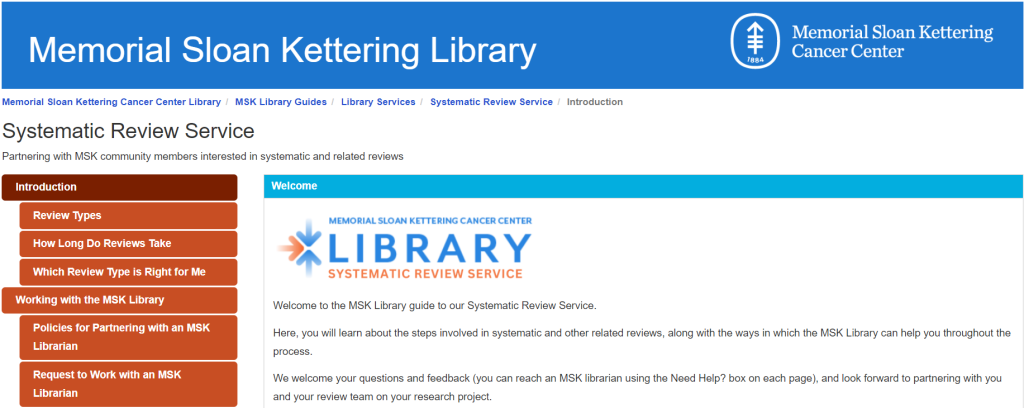 The MSK Library Reference Team has launched a new guide to our Systematic Review Service!
The MSK Library Reference Team has launched a new guide to our Systematic Review Service!
We approached this guide with our users in mind, building it with the questions we most frequently get about systematic and other related reviews.
You can use this resource to get a sense for what review type is right for you, request to work with an MSK librarian, or learn from our step-by-step breakdown of the systematic review process. Throughout the guide we’ve emphasized the support you can expect from the MSK Library while working on your research project.
If you’re thinking about embarking on a review, we encourage you to explore it! We look forward to partnering with you in the future.


